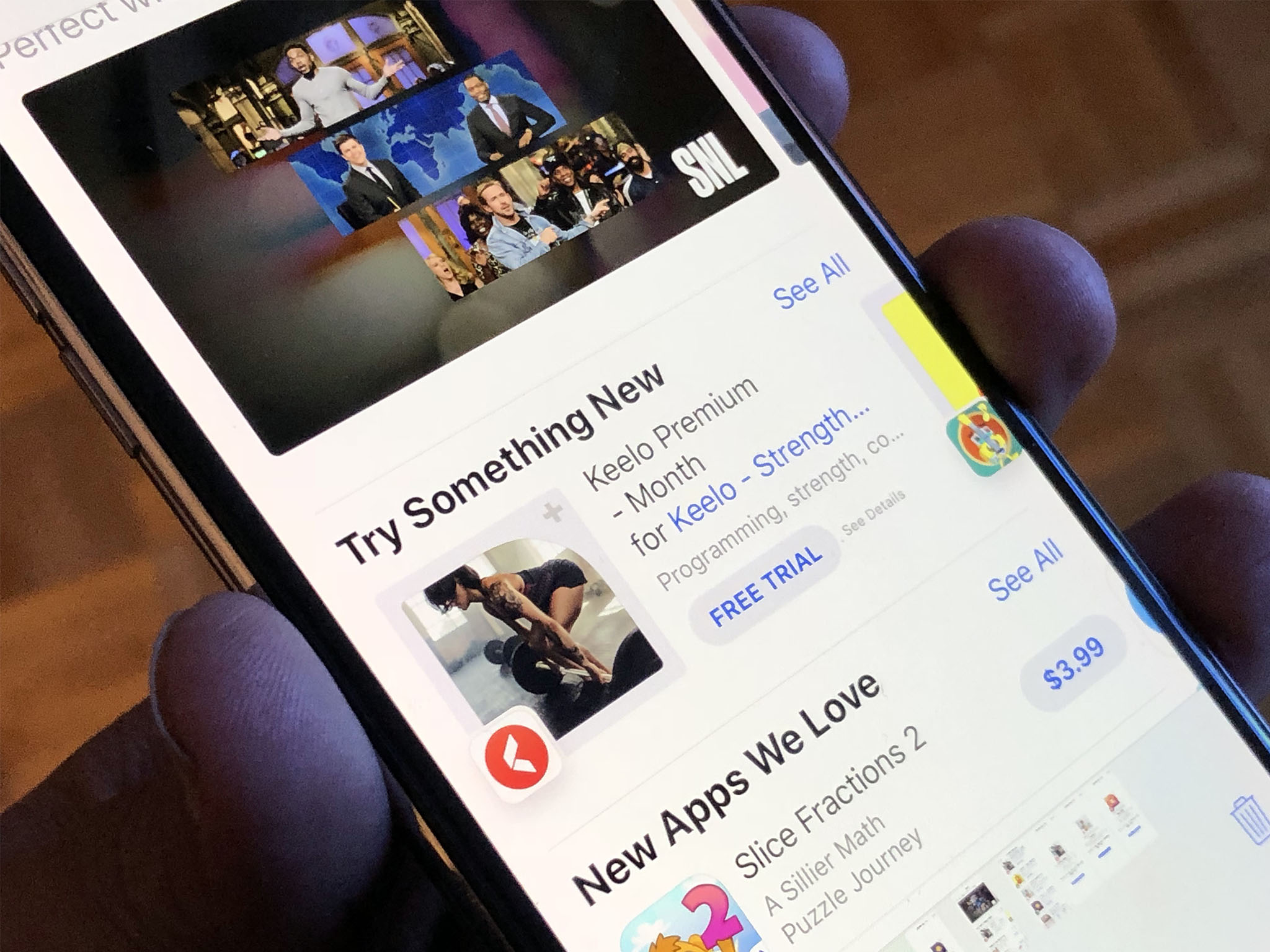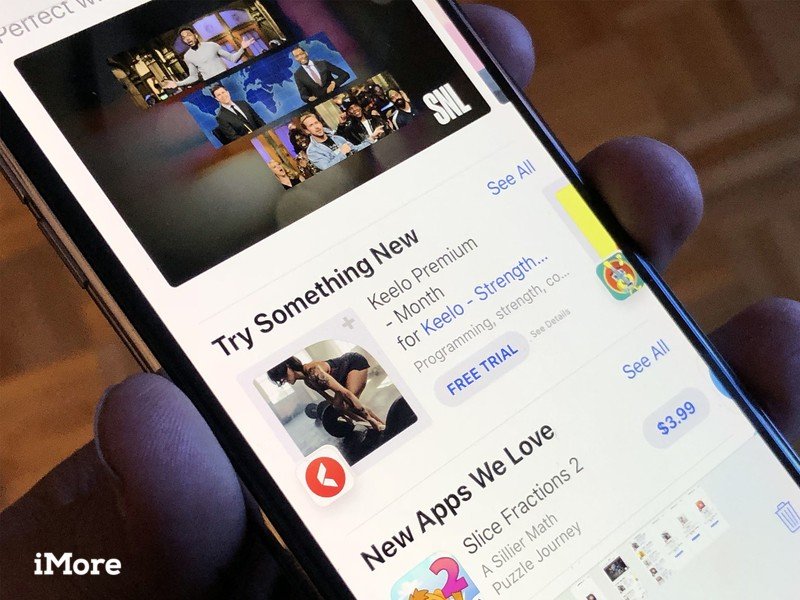 Source: iMore
Source: iMore
An interesting thought experiment was kicked off last week on Twitter by Peter Cohen, former iMore Mac Editor: is it only a matter of time until Apple launches its own subscription service for apps à la Setapp?
Apple has certainly turned up the dial on its services in the last few years and, as a revenue stream that continues to set records every quarter, it’s something investors are happy to see continue to expand.
That begs the question, will Apple roll its own premium ‘Apple Arcade for apps’-style subscription service and take on Setapp? There’s no doubt it definitely could do so and blow a hole through Setapp’s business in the process, but should it? Let’s explore.
Apps and games are different
Of course, Apple already has its all-you-can-play gaming service, Apple Arcade. Alone, it costs $5 per month and features hundreds of titles, many exclusive, with more being added regularly. Thrown in with the Apple One bundle, it’s an even better deal if you already subscribe to a couple of other Apple services like Apple Music and Apple TV+.
Of Apple’s offerings, Arcade is most similar in concept to a theorized Apple app subscription service. For the sake of this discussion, let’s call it Apps+ since it offers a collection of games (which are also apps) for a flat monthly fee. You can access those apps for as long as you are subscribed, and you don’t have to make in-app purchases, pay for upgrades, or see any ads as your subscription covers everything.

Source: Bryan M. Wolfe / iMore
If that sounds familiar, it’s because it is. Setapp has been doing this for productivity apps for years. Of course, there are some nuanced differences, but, essentially, you pay a monthly fee and get unlimited access to its library of apps with no in-app purchases, no ads, and no upgrade costs to worry about.
Though mobile games are apps, they are very different from non-game apps in function and economics. Games drive a huge proportion of App Store revenue. You only need to look at some of the top grossing games to see how much money they make.
Mobile games and apps are very different in terms of function and economics.
Some people spend a lot of money on mobile games, driven by in-app purchases, and many others are stuffed full of ads between levels and on menu screens. Because of these factors, the gaming market was ripe for reimagining, which is why we see gaming subscription services from Apple, Microsoft, Sony, and others.
Games are also much more experiential. Though you might like one calendar app’s design over another or prefer the utility of a particular weather app, apps are much more functional tools for the most part. The majority of people probably rarely spare a thought for the apps they use daily.
On the other hand, games are unique entertainment products, stories with myriad genres, design styles, mechanics, music, and more. When you combine the skewed economic factors in gaming with the possibility for platform-exclusive games, experiences you don’t get elsewhere, a gaming subscription service stands out as a product that can not only work but have broad appeal.
Where Apple could take on Setapp

Source: Bryan M. Wolfe / iMore
Setapp started as a subscription service that offered premium apps for discerning Mac users. It brought together around 60 productivity apps and utilities already popular in the Apple sphere and offered them at a discounted rate versus buying them together. Since then, it has broadened its scope to include iOS apps and now offers over 200 apps for $10 per month.
It’s a pretty stellar offering if you want to seriously use even a few of the best Mac apps it offers. Apps in there like Ulysses and MoneyWiz regularly cost $50 per year, with CleanMyMac X and GoodTask being $90 and $40 upfront, respectively, so there’s plenty of value to the service. Setapp on the Mac also allows certain apps to continue to make economic sense, like Bartender, which is not available in the Mac App Store, or iStat Menus, which has a neutered version available via Apple’s official marketplace.
For the price, you get access to its library of apps on one Mac with a family plan of four Macs costing $20 per month and additional iOS devices costing $2.49 apiece. Of course, Apple, with its endless cash reserves, could undercut these prices quite easily and bundle it up with Apple One and Family Sharing to make it even more affordable.
Apple could undercut Setapp’s prices and bundle its service up with Apple One and Family Sharing to make it even more affordable.
Setapp’s process for adding iOS devices is also a bit janky, no doubt to skirt around Apple’s App Store rules. Apple could completely remove any friction by integrating its service with Apple IDs and iCloud, using the tools already available to developers for building cross-platform apps.
Apple also has the pulling power to get buy-in from developers. Though developer relations aren’t always super smooth, iOS and Mac devs know that the market of Apple device users is the most lucrative. So if Apple wanted to push its Apps+ service, it could put it front-and-center in the App Store. With the change to get that kind of exposure in the App Store, many developers would undoubtedly get on board.
Apple’s motivation

Source: Apple
Of course, Apple wants its subscription revenue chart to continue heading skywards each quarter, so there is sure to be appeal to another paid-for service. I’m also sure someone has done the math on it.
Also, consider that Apple already happily takes its cut of paid apps offered through the iOS and Mac App Stores, whether they cost money upfront or have in-app purchases or subscriptions to unlock additional functionality.
Though the details are murky due to minimal reporting, and presumably strong NDAs, it’s commonly understood that Apple offered to fund the development of new games for Apple Arcade. These games would either not exist or be severely hamstrung by the App Store economic model. Apple propping them up with upfront cash in exchange for platform exclusivity enabled some ideas to come into existence that otherwise would not. That’s not necessarily the same for apps.
Setapp, for example, bundles together previously available apps at a discount. That saving is its appeal. The apps are available elsewhere and, if you don’t want to use many of the other apps in Setapp’s catalog, you can buy the apps you want directly from the developer or the App Store. Setapp only makes sense financially if you want to use several of the apps it offers.
For developers, being included in the Setapp library is something of a status boost and has the added benefit of your product being much more visible to its thousands of subscribers in a curated library than it is within an App Store catalog featuring millions of applications. Additionally, since Setapp subscription revenue is split across app makers depending on usage data, it’s possible that it could make a decent additional revenue stream while allowing apps to remain available wherever else they need to be.
There’s no chance that Apps+ would include unlimited access to every app on the App Store. If a theoretical Apps+ service pursued the same strategy of offering apps that are available elsewhere, does it have enough appeal to justify its existence? If it went the Arcade route, what sort of exclusive apps could Apps+ even offer, and why would a developer choose to forgo releasing their software elsewhere?
Because Apple could offer a much more integrated experience for its loyal customers, the Setapp model seems to be the only one worth exploring. If apps are available outside of Apps+, I think the appeal of the service is much smaller. Perhaps before App Store subscriptions were a thing, this product would have been appealing. Still, the intersection on the Venn diagram of people that care about apps, are willing to pay for apps, and pay for several apps at once is remarkably small.
Other than offering some minor savings, what else is there to convince this small addressable market of people to tear up their current ways of paying for software and move over to Apps+? Ultimately, I think this is why we have yet to see a premium app subscription service from Apple.
What do you think? Should Apps+ exist, and what would convince you to subscribe if it did? Sound off in the comments.

